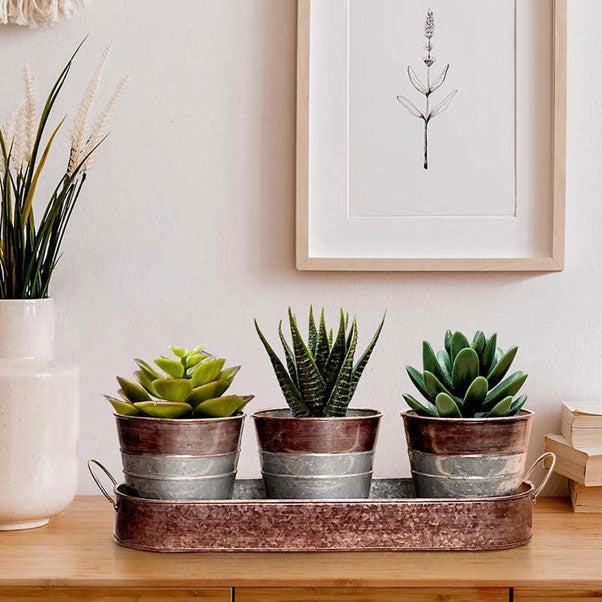Decorative pots are not just functional; they are a vital element of home decor that can elevate the aesthetic appeal of any indoor space. As someone who has spent countless hours curating the perfect indoor garden, I can tell you that the right decorative pot can make all the difference! In this article, we will explore various styles, materials, and tips for selecting the best decorative pots indoor, ensuring your plants thrive in style.
Why Choose Decorative Pots Indoor?
Decorative pots can serve multiple purposes in your home. Here are a few reasons why they are essential:
- Aesthetic Appeal: They enhance the visual appeal of your plants.
- Complementing Decor: Decorative pots can match your home’s theme and color scheme.
- Health Benefits: Indoor plants improve air quality and promote well-being.
Types of Decorative Pots Indoor
There are several types of decorative pots available, each with its unique features and benefits. Below, I have categorized them based on materials and styles.

1. Material Types
Ceramic Pots
Ceramic pots are popular due to their durability and variety of designs. They often come in vibrant colors and patterns.

Plastic Pots
Lightweight and budget-friendly, plastic pots come in various shapes and sizes, making them versatile for any decor.
Terracotta Pots
Known for their rustic charm, terracotta pots are excellent for plants that require excellent drainage.

Metal Pots
Metal pots provide a modern look. They are durable but may require extra care to prevent rust.
Concrete Pots
Concrete pots give an industrial vibe and are perfect for larger indoor plants.

2. Style Types
Modern Minimalist
Clean lines and simple designs define the modern minimalist style.

Bohemian
Bohemian pots often feature intricate patterns and earthy tones, perfect for an eclectic decor.
Classic Vintage
Vintage pots bring nostalgia and charm with their intricate designs and colors.

Choosing the Right Decorative Pots Indoor
When choosing decorative pots, consider the following factors:
1. Size and Proportions
Ensure the pot size is appropriate for the plant. A pot that is too small can stunt growth, while one that is too large may retain excess moisture.
2. Drainage
Always check for drainage holes. Proper drainage helps prevent overwatering, a common issue for indoor plants.
3. Style and Color
Choose pots that complement your decor. Consider colors and patterns that match your existing furniture and wall color.
4. Material Suitability
Select materials that align with the care requirements of your plants. For instance, succulents thrive in terracotta due to its breathability.
Comparative Table of Decorative Pots
| Type | Material | Drainage | Price | Best For |
|---|---|---|---|---|
| Ceramic | Clay/Glazed | Yes | Medium | Flowers & Foliage |
| Plastic | Polypropylene | Varies | Low | Budget-Friendly Options |
| Terracotta | Clay | Yes | Medium | Succulents & Cacti |
| Metal | Aluminum/Steel | No | High | Modern Decor |
| Concrete | Cement | Yes | High | Larger Plants |
Pros and Cons of Different Decorative Pot Materials
Ceramic Pots:
- Pros: Attractive, good insulation.
- Cons: Heavy, can break easily.
Plastic Pots:
- Pros: Lightweight, inexpensive.
- Cons: May not be as visually appealing, less durable.
Terracotta Pots:
- Pros: Excellent drainage, breathable.
- Cons: Can dry out quickly; may require more frequent watering.
Metal Pots:
- Pros: Stylish, modern look.
- Cons: Can rust, retain heat.
Concrete Pots:
- Pros: Durable, great for larger plants.
- Cons: Heavy, can be expensive.
Tips for Arranging Decorative Pots Indoor
Arranging your decorative pots can transform your space into a vibrant, lively area. Here are some of my favorite tips:
1. Create Levels
Use plant stands or hang pots at different heights to add dimension to your decor.
2. Grouping Plants
Group plants with similar care requirements together to create a harmonious look.
3. Play with Color Schemes
Incorporate a mix of colors and textures to create visual interest. Use contrasting colors to make a statement!
4. Use Natural Light to Your Advantage
Position your pots where they can soak up sunlight, but avoid direct harsh light, which can scorch leaves.
Maintenance Tips for Indoor Decorative Pots
Maintaining your decorative pots and the plants within them is crucial for their longevity. Here are my top maintenance tips:
1. Regular Watering
Make sure to establish a consistent watering schedule based on your plant’s needs.
2. Fertilization
Feed your plants with appropriate fertilizers, especially during the growing season.
3. Cleaning
Clean your pots regularly to prevent the buildup of dust and dirt, which can attract pests.
4. Repotting
Repot your plants as needed to ensure they have sufficient space to grow.
Frequently Asked Questions (FAQs)
1. What size decorative pot should I choose for my indoor plants?
The size of the pot should be 1-2 inches larger in diameter than the plant’s root ball to allow for growth.
2. Do decorative pots need drainage holes?
Yes! Proper drainage is essential to prevent overwatering and root rot.
3. How often should I water plants in decorative pots?
Watering frequency depends on the type of plant, but a general rule is to water when the top inch of soil feels dry.
4. Can I use any type of decorative pot for indoor plants?
Choose pots that are appropriate for your plants’ needs. Ensure that any pot you select allows for proper drainage.
5. How do I style decorative pots in my home?
Consider grouping plants, using varying heights, and coordinating colors with your interior design to create an appealing display.
Conclusion
Decorative pots indoor are a fantastic way to express your personal style and bring life into your home. By understanding the types, choosing the right materials, and arranging them appealingly, you can create a vibrant indoor environment. Remember that with a little care and creativity, your indoor plants and their decorative pots can become a stunning focal point in your home. Happy planting!